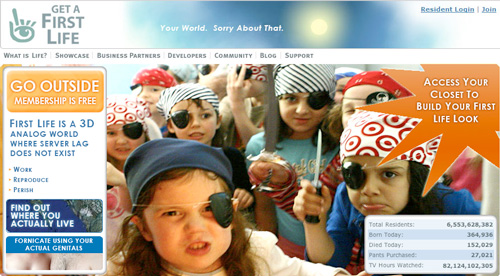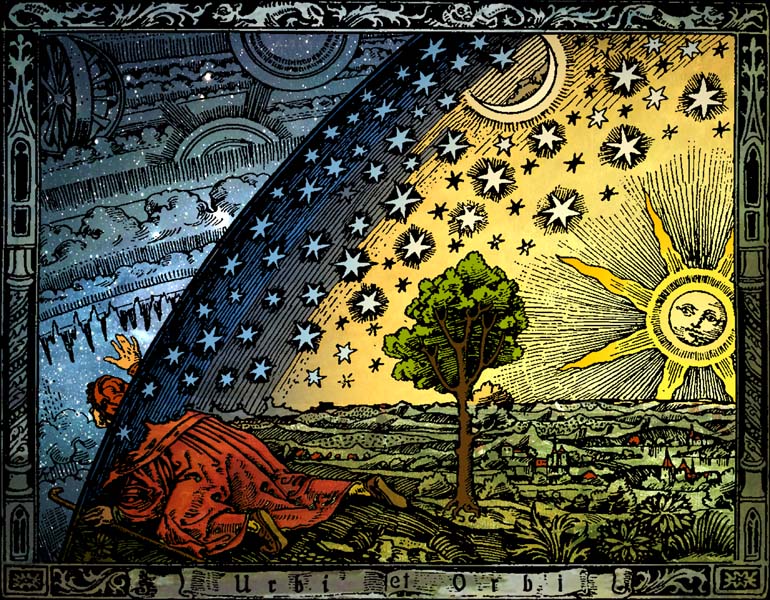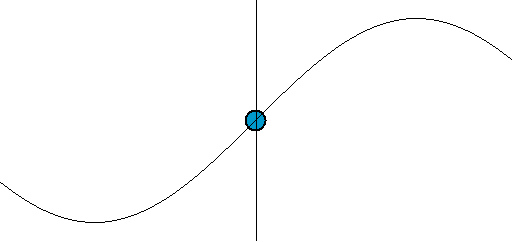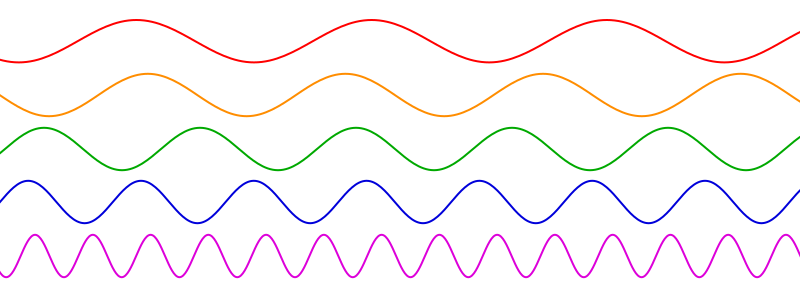
- Blogs (Apr 09, 2020)
- News (Sep 17, 2025)
- Organizations (Nov 04, 2023)
- People (Nov 03, 2023)
- Projects (Aug 08, 2024)
You can log-in or register for a user account here.


Image: "Jackson_Pollock_by_Miltos_Manetas" by Amalyah Keshet, 2006
Software Remix: "JacksonPollock.org" by Miltos Manetas, 2003
Software: "Splatter" by Michal Migurski & re-elaborated by Iashido, 2003
CC Atttribution Non-Commerical Share-Alike 2.5 License

"Jackson Pollock painting "One: Number 31, 1950" at the Museum of Modern Art", 2007
Image: "Pollock31.jpg" by Americasroof (wikipedia)
CC Attribution Share-Alike License version 2.5


Archive: JAN 2007: darrenbarefoot.com
Creative Commons License
• • • •
"Symposium on Creativity"

"Why Creativity Matters", Aug 2007
Larry Johnson, CEO, The New Media Consortium (NMC)
NMC Creative Commons License
•••••
InternetGen Communicator

•••••••
Post-New Silent Gen...


Image: "The Flammarion woodcut" (Recoloured 1998) - anonymous, wood engraving (wikipedia)
Link: "Sogno ad Occhi Aperti (Daydream) PART 1" by Giovanni Sollima.

"VISION OF AN OPEN LIBRARY" | "LIBRARIES GOING OPEN (2007)"
By Brewster Kahle
• Table of Contents
• Guided Tour
 "Kurt Gödel's (1906-1978) monumental theorem of incompleteness demonstrated that in every formal system of arithmetic there are true statements that nevertheless cannot be proved. The result was an upheaval that spread far beyond mathematics, challenging conceptions of the nature of the mind."
"Kurt Gödel's (1906-1978) monumental theorem of incompleteness demonstrated that in every formal system of arithmetic there are true statements that nevertheless cannot be proved. The result was an upheaval that spread far beyond mathematics, challenging conceptions of the nature of the mind."Harvard University

"I am a Strange Loop" (2007), seeks to demonstrate
how the properties of self-referential systems,
demonstrated most famously in
Gödel's Incompleteness Theorem, can be
used to describe the unique properties of minds.
- Douglas_Hofstadter, Center for Research on Concepts and Cognition
Indiana University
"Douglas R. Hofstadter: Analogy as Core, Core as Analogy"
Glen Worthey, Humanities Digital Information Service (HDIS), Stanford University Libraries, 2006
"Is the core of cognition and animacy essentially only self-representation and self-reference (as in Bach, in our DNA and elsewhere)? Is it essential incompleteness (as in Gödel’s Theorem and elsewhere)? Is it strange loops and tangled hierarchies (as in Escher, in Hofstadter’s own book, I Am a Strange Loop, and elsewhere)? Is it in the patterns, puzzles, paradoxes, puns, poetry, and programming that we see throughout Hofstadter’s work? Or is it elsewhere?
Elsewhere.... Perhaps it is precisely in analogy that we find the common thread of all these cognitive and creative phenomena, and thus the common element in the endeavors that make us human, and thus the core of our humanity..."

"The Year of Mathemagical Thinking"
Lev Grossman, TIME Magazine, March 15, 2007
Review: "A Reflection on The Loopy Self"
Ben C. Burns, Harvard Crimson, April 27, 2007
“I Am a Strange Loop” sets out to probe the essence of the soul—in a philosophical, cognitive sense... Consciousness, soul, and “a light on inside” are all terms referring to the essential “I” which somehow composes an individual human self...
...is very self-referential, and that any explanation of the concept bends back onto the same concept again. The resulting loop, though, isn’t like most loops caused by self-reference, since there’s no feedback as in... an infinite corridor of TV screens on videotape. So consciousness isn’t a regular loop; it’s a strange loop.
..while presenting arguments of logic, clever bits of analogy here and there add up to reveal that the book itself is more than just a friendly essay: everywhere you turn, “Strange Loop” is drawing back on itself, too. For example, the book’s arguments are made almost entirely through symbols, analogies, and tales of personal experience. Appropriately, Hofstadter devotes much discussion to the reasons that symbols, analogies, and empathy (or, as he calls it, “Varying Degrees of Being Another”) actually work. This book is a work of art, unabashedly self-referential on every level..."
"Trying to Muse Rationally about the Singularity Scenario" [Quicktime] [MP3]
Singularity Summit, Stanford University, May 13, 2006
Abstract: "...And yet there are some basic ideas that we should not lose track of, and that should help to keep us from confusing wild speculation with grounded reality. In my talk, I will attempt to chart out a way of looking at the “singularity scenario” with one's feet on the ground, and I will try to give, using my moderate familiarity with a number of different scientific disciplines, a personal appraisal of what I see as the likelihood of our being eclipsed by (or absorbed into) a vast computational network of superminds, in the course of the next few decades."
"The So-called Singularity: An Onrushing Tsunami, or Another Y2K?" [MP3]
Artificial Life X: Tenth International Conference on the Simulation and Synthesis of Living Systems
Bloomington Campus, Indiana University, June 3-7, 2006
Abstract: "In the past few years, a number of futurologists, extrapolating on the basis of many interrelated exponential curves such as Moore's Law, have come to the conclusion that computer intelligence is rising so swiftly that quite soon, it will inevitably reach and then surpass human intelligence, and that at that monumental juncture in the history of this planet, humanity will be eclipsed and replaced by its own creations. Within a few decades, these cyberprophets proclaim, we humans will be living among superintelligent entities that are just as incomprehensible to us as we are incomprehensible to bacteria, and the upward spiral will continue from there on without limit, resulting in entities "who" are literally billions of times more intelligent than today's humans are, and "who" will soon commandeer stars and then whole galaxies, finally turning the entire universe into one single inconceivably intelligent self-reflective organism akin to the Omega Point of the mystic Jesuit philosopher Teilhard de Chardin..."

 Holistic Options for Planet Earth Sustainability
Holistic Options for Planet Earth Sustainabilityis the only ecological design conference
developed and managed by students...
working to promote the deeper understanding and
broader application of sustainable design principles.
"We live on a water planet.
Its complex properties have been inspirational
for science and art since time immemorial.
As water sculpts our physical landscape,
it manifests energy to form civilizations or erode them.
Its power is shadowed by continuing degradation
and scarcity throughout the world.
As designers, we are called to a confluence to
understand our interdependence and connection to water."

Descrption: Lena River Delta (Visible Earth v1 ID: 18024) Public Domain
Credit: Image provided by the USGS EROS Data Center Satellite Systems Branch.
This image was acquired by Landsat 7’s Enhanced Thematic Mapper plus (ETM+)
 The American Journal of Public Health recently published a study (field action report) featuring Metamedia collaborator, Mark Lakeman of City Repair Project.
The American Journal of Public Health recently published a study (field action report) featuring Metamedia collaborator, Mark Lakeman of City Repair Project."The Intersection of Urban Planning, Art, and Public Health: The Sunnyside Piazza."

(CC) Attribution-Noncommercial-Share Alike 3.0 Unported
A Quote from the Abstract:

"...In an attempt to invigorate neighborhood stewardship, the community organized and created a public gathering place; together, they painted a gigantic sunflower in the middle of an intersection and installed several interactive art features. As a result of these collective actions of "place-making," social capital has increased, thus revitalizing the community, and expanded social networks among residents have stimulated a sense of well-being..."
- Jan C. Semenza, PhD, MPH, MS
School of Community Health, College of Urban and Public Affairs, Portland State University, Oregon



*NEW* FROM BERKMAN CENTER @ HARVARD LAW
"What Ben Franklin Teaches us about Intellectual Property"
or “I Own Creative Content, Therefore I Am, Not”
MP3 AUDIO | MP4 VIDEO

- Lewis Hyde, Richard L. Thomas Professor of Creative Writing, Kenyon College &
Fellow, Berkman Center for Internet and Society, Harvard University
Author: Trickster Makes This World: Mischief, Myth, and Art

"We have lived by the assumption that
what was good for us would be good for the world.
We have been wrong.
We must change our lives, so that it will be possible
to live by the contrary assumption that
what is good for the world will be good for us. . .
We must recover the sense of the majesty of the creation
and the ability to be worshipful in its presence.
For it is only on the condition of humility and reverence before the world
that our species will be able to remain in it."
- Wendell Berry, American man of letters, academic and farmer
 Initiative to Provide Digital Images to Scholars at No Charge
Initiative to Provide Digital Images to Scholars at No Charge"In a new initiative designed to assist scholars with teaching, study, and the publication of academic works, The Metropolitan Museum of Art will distribute, free of charge, high-resolution digital images from an expanding array of works in its renowned collection for use in academic publications... effective immediately. Scholars – in higher education and in museums – have been struggling with the question of how digitization might help to enable, rather than hinder, scholarly communications. For all involved, it is obvious that, when faced with an important directional challenge, the Metropolitan is providing decisive leadership."

"...often referred to simply as "the Met", is one of the world's largest and most important art museums." (wikipedia) "It first opened on February 20, 1872 with a mission to collect, preserve, and display works of art spanning 5,000 years of world culture from every part of the globe, and to educate the public about art – is the most comprehensive art museum in the Western Hemisphere with a collection now including more than two million works of art."

Title: Deutsch: Einschiffung nach Kythera
Artist: Watteau, Antoine
Source: Wikipedia, public domain
License: GNU Free Documentation License, The Yorck Project
 ON THE BRAIN by The Harvard Mahoney Neuroscience Institute
ON THE BRAIN by The Harvard Mahoney Neuroscience Institute"For more than 2,500 years, Buddhist monks have known that practicing meditation leads to increased inner strength, calmness and self-awareness, strengthened contact with subconscious feelings and thoughts, and greater spiritual growth. Now, Harvard Medical School scientists have found that regular meditation can also alter the structure of our brain..."
Volume 12, Number 3 - Fall 2006: Download Paper [med.harvard.edu]

- Apache HTTP Server
- Audacity [audio]
- Blender [3D suite]
- Brave [browser]
- EMS Resources
- Firefox [browser]
- FreeCAD [modeler]
- GIMP.org [graphics]
- Inkscape [vector]
- Krita [painting]
- LibreOffice
- Linux Kernel
- Mattermost [team]
- MediaWiki
- Moodle [LMS]
- Mozilla Hubs
- NetNewsWire
- Nightingale [music]
- OBS Studio
- QGIS [Geo-Info-Sys]
- SeaMonkey [editor]
- Shotcut [video editor]
- Thunderbird [email]
- Thunderbird Lightning
- VLC [VideoLan]
- Wordpress [CMS]
- xiph Vorbis [ogg]
- XMPP [comm]
INTERNET ARCHIVE
WIKIMEDIA FOUNDATION
OPEN COURSEWARE
- Archive Educational
- BerkeleyX
- UCambridgeX
- ColumbiaX
- Commons
- EdX
- DelftX
- ETHx
- Encyclopedia of Life
- HarvardX
- Harvard Online
- Harvard U
- CancerCommons
- Identity Mashup
- LSEX
- Merlot
- MIT OpenCourseware
- MITX
- Neuropathy Commons
- Northwestern U
- OpenCulture
- Open Edu Global
- Open Journal Systems
- OpenStax at Rice
- Open U OER
- Oregon State U
- SchoolForge
- Stanford U
- Tree of Life (glossary)
- U of Michigan
- UTAustinX
- U of Oxford
- Wikiversity
- Yale Open Courses
• Deep Learning
• Machine Learning
• Reinforcement Learning
• Neural Network
• Artificial Intelligence
OPEN FORGES
OPEN METAVERSE
• Blender [3D Suite]
• Firestorm Viewer
• GitHub
• Hubs Foundation
• Libre3D
• Metaverse Project
• NIH 3D Print Exchange
• OpenKinect
• OpenNI2
• OpenSim
• OpenSourceVR
• PlayCanvas
• Sirikata
• Sketchfab
• Thingiverse
• 3D Warehouse
• Unity 3D
• WebGL (Moz)
• WebXR API (Moz)
• Yeggi
• YouMagine
- Arxiv at Cornell
- Arxiv Computer Research
- Arxiv Mathematics
- Arxiv NonLinear Sciences
- Arxiv Physics
- Arxiv Quantitative Biology
- Berkeley Electronic Press
- BioRrxiv
- Free Legal Resources
- MediArXiv
- Public Library of Science (PLoS)
- PLoS ONE
- PLoS Biology
- PLoS Complex Systems
- PLoS CompBio
- PLoS Genetics
- PLoS Medicine
- PLoS Systems Science
- Science Commons
- Smithsonian
- Wex Legal Dictionary
- Alternative Freedom
- Brothers Chudnovsky
- Century of Self
- Conundrum
- Design-e2
- Digital Nation
- Einstein's Big Idea
- The Elegant Universe
- Evolution
- The Facebook Dilemma
- Fritjof Capra
- Generation Like
- The Grey Video
- Growing Up Online
- How Art Made the World
- In the Age of AI
- Last Child in the Woods?
- Life Incorporated
- Merchants of Cool
- Mirror Neurons
- OurMedia
- OS Media
- The Persuaders
- Plastic Wars
- Present Shock
- RecentChangesCamp06
- Revolution OS
- Who Owns Culture?
- Definition
- MP3 7.2MB
- More A/V
- Stanford Talk
Games- Agility
- Drawing
- OS Games
- Spelling
Media Ecology- Definition
- Tetrad of Effects
Optics- Dymaxion Map
- Hubble Telescope
- James Web Telescope
- Map - Territory
- Op Art
- Virtual Globe
- Visible Earth
Systems Science- 68th Proceedings
- 67th Proceedings
- 66th Proceedings
- 65th Proceedings
- 64th Proceedings
- 63rd Proceedings
- 62nd Proceedings
- 61st Proceedings
- 60th Proceedings
- 59th Proceedings
- 58th Proceedings
- 57th Proceedings
- 56th Proceedings
- 55th Proceedings
- 54th Proceedings
- 53rd Proceedings
- 52nd Proceedings
- 51st Proceedings
- 50th Proceedings
- Retrospective 12
- Retrospective 11
- Retrospective 10
- Retrospective 09
- Retrospective 08
- Retrospective 07
- Retrospective 06




